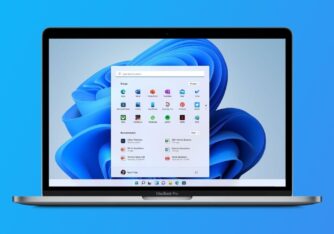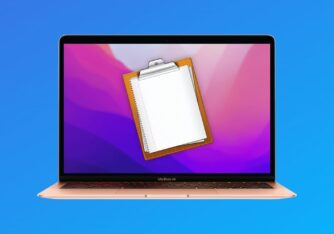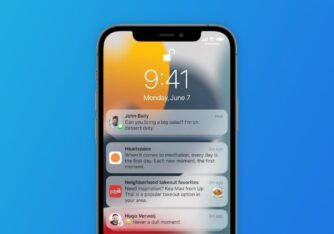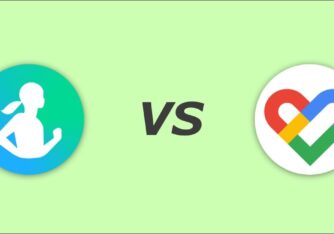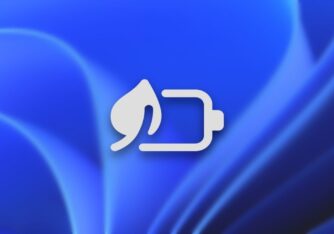When choosing a computer for programming, the decision between a Mac and a PC is often a subject of heated debate. Each platform offers distinct advantages that cater to different types of developers and development tasks.
Macs offer a Unix-based operating system that provides a comfortable environment for developers who prefer a command-line interface. Macs also provide exclusive access to Apple’s proprietary software and tools, such as Xcode, which is necessary for iOS and macOS development.
On the other hand, PCs running Windows have a broader range of software available, particularly for gaming and enterprise applications. They often come at a more affordable price point than Macs, offering a variety of hardware configurations that can be tailored to the user’s budget and performance needs. Moreover, Windows PCs have a larger market share, which can be a crucial factor when developing software intended for a wide audience.
Ultimately, the choice is influenced by personal preference and the specific requirements of the development projects one intends to undertake.

Operating Systems and Ecosystems
When choosing between Mac and PC for programming, we must consider the core differences in their respective operating systems and how these influence the ecosystems they create.
MacOS: Unix-Based Stability and Security
MacOS is a Unix-based operating system, which gifts its inherent stability and security features. These are crucial for developers who require reliable systems.
Apple’s tight control over both hardware and software in the MacOS ecosystem provides a seamless integration with other Apple services and devices, such as iOS.
Windows OS: Versatility and Gaming
Windows is known for its versatility, supporting a wide array of hardware configurations and software applications. This flexibility extends to gaming, where Windows PCs have a clear edge due to the availability of high-performance hardware and a larger library of games. For developers, Windows OS supports various Windows-specific tools like Visual Studio, bolstering the software development experience.
Software and Tools Compatibility
- MacOS:
- Native support for Xcode, the essential tool for developing Apple ecosystem applications.
- Provides access to Unix command-line tools out-of-the-box.
- Windows:
- Offers a broad selection of software available for development, from traditional to the latest cutting-edge tools.
- Compatibility with Windows-specific development software is not typically available on MacOS.
Ecosystem Integration and Workflow
MacOS offers integration with the Apple ecosystem, enhancing workflow for those who use multiple Apple products. This includes syncing with iOS devices and services for a streamlined experience.
In contrast, Windows provides its own ecosystem, which, while not as tightly integrated as Apple’s, still offers rich services and software compatibility that can cater to diverse needs.
Both environments offer distinct experiences and benefits tailored to different development workflows.
Hardware and Performance
When we discuss programming, the choice of hardware directly affects performance. Let’s explore how both Mac and PC stack up in terms of hardware capabilities.
Mac Hardware: Performance and Reliability
MacBooks are renowned for their performance stability and reliability. Mac users benefit from the integration of hardware and software, designed to work seamlessly together, resulting in optimal performance.
For instance, the latest Mac models are equipped with Apple’s own M1 chip, which delivers high-speed performance with superior energy efficiency. A MacBook’s RAM is usually not upgradable, but it’s optimized to run macOS efficiently. Here is how Mac hardware characteristics stand out:
- Performance: Smooth and high-speed processing with Apple’s custom silicon.
- Reliability: macOS is known for its stability on Mac hardware.
- Durability: MacBooks have solid build quality, contributing to their longevity.
PC Hardware: Flexibility and Upgrades
PCs offer a different advantage: flexibility and a wide range of options. A PC can be a desktop or a laptop, with an extensive variety of hardware components from various manufacturers.
This is beneficial for developers who require specific configurations or seek a budget-friendly setup. Here’s why PC hardware is a suitable choice for many:
- Flexibility: Compatible with a variety of software development environments.
- Compatibility: Easily runs different operating systems, including Linux.
- Upgrades: RAM and storage can often be upgraded to extend the computer’s life.
PCs can be customized to fit any performance need or budget, whether it’s for a high-end gaming rig or a cost-effective programming machine.
Programming Tools and Environments
In choosing between Mac and PC for programming, we need to consider the availability and compatibility of development tools and IDEs, as well as the support for various coding languages and frameworks. These elements define how effectively we can work within an operating system.
Development Tools and IDEs
- Mac
- Xcode: This is Apple’s flagship IDE, exclusively available on macOS. It’s essential for developing iOS, macOS, watchOS, and tvOS applications. Xcode is known for its interface builder, asset management, and performance profiling tools.
- PC
- Visual Studio: Microsoft’s IDE that is highly popular among .NET developers. Supports a variety of languages and is extensible, though it’s more resource-intensive.
- Visual Studio Code: A lightweight, cross-platform editor that has gained immense popularity for its flexibility, extension ecosystem, and support for a wide range of programming languages and frameworks.
Overall, Macs tend to offer a more seamless experience for developers looking to create apps for Apple’s ecosystem. On the other hand, PCs provide a robust environment for .NET development and more diversity in tool choices.
Coding Languages and Frameworks
- Mac
- Swift: The preferred language for Apple’s platforms. Swift’s integration with Xcode provides a powerful environment for developing modern apps.
- Java & Others: Macs support a wide range of languages and stacks, but specific tools or versions may have delayed updates compared to their PC counterparts.
- PC
- .NET Frameworks: A staple in the PC environment, specifically tailored for Windows. With tools like Visual Studio, programming in .NET is streamlined.
- Java & Others: PCs have universal support for Java and most other major languages, often receiving the latest updates more promptly.
On both platforms, a variety of programming languages are supported, but the key difference lies in the proprietary technologies—Swift and Xcode on Mac, and .NET with Visual Studio on PC. Our choice depends on which stack we plan to work with more extensively.
Costs, Budgeting, and Personal Preference
When we explore the world of programming, we often tackle the Mac vs. PC debate from a cost and personal preference standpoint, understanding that these factors can greatly influence our decisions.
Analyzing the Total Cost of Ownership
The Total Cost of Ownership (TCO) for a programming setup isn’t just about the initial purchase price; it also includes long-term expenses such as software updates and hardware upgrades.
Macs generally offer a more streamlined update ecosystem, often at no extra cost, while PCs might require additional expenses for major software upgrades. Here’s a quick breakdown to consider:
| Factor | Mac | PC |
|---|---|---|
| Initial Cost | Higher upfront for hardware | More variable, with budget-friendly options |
| Software Updates | Usually free, included with new devices | Cost varies, some updates may be paid |
| Hardware Upgrades | Typically not customizable; higher cost | More options for customization and upgrades |
Budget-friendly PCs might appear more economical initially, but it’s worth considering the potential for additional expenses over time.
Considering Personal Preference and Career
Our personal preference largely sways our choice of operating system.
If our career involves developing for Mac or iOS, a Mac might be indispensable due to its exclusive development tools. Conversely, if we’re entering fields like enterprise IT or gaming, where Windows dominates, a PC could be more advantageous.
- Personal Learning Path: If we’re just learning to code, the choice might hinge on which platform feels more intuitive or what our educational program recommends.
- Enterprise Considerations: In an enterprise setting, the decision may align with the existing infrastructure or the programming languages and software we expect to use.
By reflecting on where our careers are headed and our personal inclinations, we ensure that our investment aligns with our professional path and personal comfort.
Conclusion: Weighing Advantages and Making Choices
When considering the Mac and PC ecosystems for programming, we need to evaluate the advantages each offers.
Macs are renowned for stability and a smooth user experience. These qualities enhance productivity and result in fewer system interruptions. They are also UNIX-based, which provides compatibility with many software development tools designed for UNIX-like systems.
PCs, on the other hand, offer versatility with an extensive range of compatible programming languages, frameworks, and tools.
For developers who prioritize a wide array of software or who work in a .NET environment, a PC might be more favorable.
| Feature | Mac | PC |
|---|---|---|
| Stability | High | Moderate |
| User Experience | Smooth | Varied |
| Versatility | Good | Excellent |
| Compatibility | UNIX-based environments | Broader range of applications |
In our task to select the right tool for development, we should consider the specific requirements of our projects.
If the project involves technologies that require a UNIX-based system or if we favor a more controlled ecosystem, a Mac could suit our needs.
Alternatively, if we require flexibility or are developing for the Windows platform, a PC might be the better option.
As for our recommendations, we offer these insights:
- Choose a Mac if you value a cohesive environment and UNIX-based compatibility.
- Opt for a PC if you need broader software compatibility and customization options.
Ultimately, our choice should align with the needs of the tasks we routinely perform and our preferences for a development environment.


